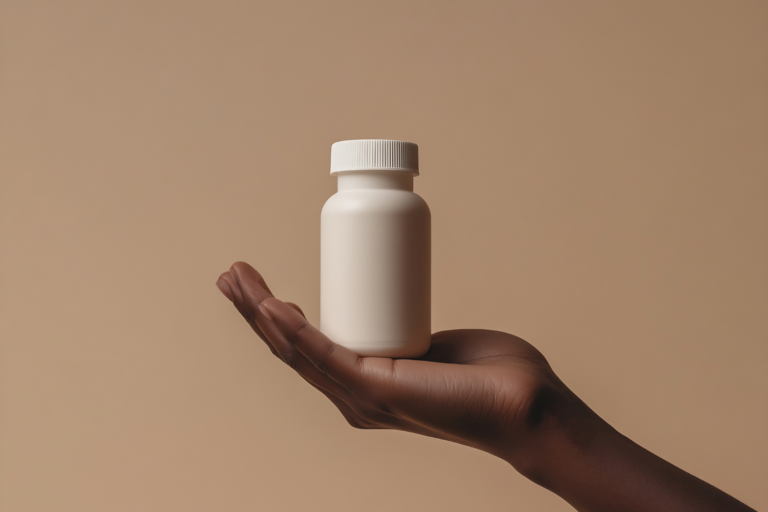What should you really ask before trusting a supplement manufacturer with your brand? Pricing and product options are easy to compare, but ownership is the detail that often hides in the background. Ownership structure shapes how decisions are made, how resources are managed, and how quality standards are enforced.
A supplement manufacturer’s ownership can reveal whether you are stepping into a stable partnership or one that could expose your supplement brand to risks like supply chain disruptions, shifting priorities, or inconsistent compliance with regulations. Understanding who holds control is just as important as reviewing certifications or raw materials.
By focusing on the right supplement manufacturer ownership questions, you protect your investment and set the foundation for a relationship that supports growth, consumer trust, and long-term success.
Why Ownership Matters in Supplement Manufacturing
Ownership affects how a supplement manufacturer operates and how your supplement brand will be supported. It shapes priorities, stability, and the ability to maintain high-quality standards across supplement products.
How ownership impacts decision-making
A family-owned or privately held supplement company often makes decisions faster because the chain of approval is shorter. These businesses can adapt quickly to supply chain management challenges or shifts in consumer preferences. In contrast, corporate-owned or private equity–backed manufacturers may place investor expectations first, which can influence production costs, minimum order quantities, or even the marketing strategy of nutritional supplements. Understanding this dynamic helps you decide which type of ownership structure aligns best with your target market.
The connection between ownership and stability
Stable leadership builds confidence in the dietary supplement industry. When ownership remains steady, manufacturing practices are consistent, regulatory compliance is easier to maintain, and product quality stays reliable. Frequent ownership turnover can create risks such as supply chain disruptions, weaker quality control, or gaps in good manufacturing practices. For supplement brands seeking growth plans in a competitive supplement industry, steady ownership is a strong signal of reliability.

What to Ask About a Manufacturer’s Ownership Structure
Asking clear supplement manufacturer ownership questions is essential to protect your supplement business. Ownership structure can reveal how committed a manufacturer is to long-term success and whether they have the foundation to support health-conscious consumers and high-quality products.
Who owns the company today?
Start with the basics. Ask if the supplement manufacturer is family-owned, privately held, or backed by investors. Each ownership type influences market positioning and management priorities. A limited liability company may provide flexibility, while a large corporate owner may bring access to advanced equipment and broader sales channels.
How long has the current ownership been in place?
The length of ownership speaks to stability. A company with the same leadership for years is more likely to maintain consistent quality standards, reliable raw material sourcing, and food safety processes. Rapid changes, however, can affect production process efficiency and reduce consumer trust.
Have there been recent mergers, acquisitions, or restructures?
Ownership changes, such as mergers or restructures, can alter key components of supplement manufacturing. These shifts may disrupt manufacturing operations, delay product quality testing, or increase production costs. For brand owners, this could directly impact profit margins, customer satisfaction, and the overall brand’s success.

What to Ask About Leadership and Management
Leadership is where ownership decisions become daily practices. The way managers and owners handle supplement manufacturing can affect supply chain management, contract manufacturing agreements, and compliance with the Food and Drug Administration (FDA) standards.
How involved are the owners in day-to-day operations?
Hands-on ownership often leads to closer oversight of quality control, critical processes, and safety standards. When owners stay engaged with manufacturing operations, it can support consistency in dietary supplements and supplement products, while also helping address issues faster.
How long has the leadership team been with the company?
Long-tenured leadership usually signals a supplement company committed to steady growth plans. Leaders who understand industry trends and the challenges of the dietary supplement industry bring continuity to contract manufacturing and maintain trust with health-conscious consumers. This experience supports consistent production processes and the ability to adapt to market trends.
What happens if ownership changes in the future?
A reputable manufacturer should have a continuity plan. This plan should cover intellectual property protection, ongoing regulatory compliance, and clear agreements with contract manufacturing partners. Without a plan, ownership changes could disrupt sales channels, delay product quality testing, or harm consumer trust.

What to Ask About Company Values and Culture
Values shape how a supplement manufacturer treats staff, suppliers, and clients. Culture influences whether companies focus solely on profit margins or also prioritize long-term customer satisfaction and consumer preferences.
What are your core business values?
Inquire whether the supplement manufacturer prioritizes product quality, sustainability, and regulatory compliance. Strong values should support good manufacturing practices, third-party testing, and food safety standards. These values are important for brand owners aiming to compete in a crowded and competitive market.
How do ownership decisions reflect those values?
Ownership should be visible in daily choices. Look at how they manage raw materials, enforce quality standards, and handle proprietary blends. A right contract manufacturing partner shows alignment between stated values and actual manufacturing practices. This connection builds consumer trust and reinforces the brand’s success.
Do you have examples of long-term client relationships?
Long-standing partnerships reveal consistency. A supplement business that maintains client relationships over the years likely provides reliable supply chain management, maintains high-quality products, and adapts to shifting industry trends. This stability supports customer satisfaction and helps position supplement brands for premium pricing and growth in the health and wellness market.
Red Flags to Watch Out For in Ownership Discussions
Ownership details that seem minor can hide big risks. When reviewing questions about supplement manufacturer ownership, pay attention to signs that indicate instability, poor compliance, or weak transparency.
Evasive answers about who owns the company
Transparency is essential. If a manufacturer fails to disclose details about its ownership structure, it raises questions about accountability. Without clear ownership, it is more challenging to assess manufacturing practices, the stability of the cash flow statement, or regulatory compliance.
Frequent ownership changes
Rapid changes in control may cause disruptions in supply chain management, reduce cost efficiency, or create confusion in the production process. For supplement brands, these shifts can lower product quality and affect the trust of health-conscious consumers.
Ownership tied to lawsuits or compliance issues
Check for a history of lawsuits or regulatory violations. Problems with FDA compliance, food safety, or good manufacturing practices suggest risks that could spill over to your supplement brand. Even one compliance issue can damage consumer trust, impact sales channels such as grocery stores or social media platforms, and erode profit margins.

How to Use Ownership Insights to Build Stronger Partnerships
Ownership insights are not just background details. They can help you choose the right supplement manufacturer and create a stronger foundation for your supplement business.
Aligning your brand values with their ownership philosophy
Select a contract manufacturing partner whose values reflect your own. A manufacturer that cares about quality standards, safety standards, and consumer trust will support your market positioning in the competitive supplement industry.
Setting clear expectations from the start
Address continuity, communication, and quality control in agreements. Establish how ownership impacts production costs, raw material sourcing, and minimum order quantities. These clear expectations protect your brand’s success and help maintain high-quality standards over time.
Reassessing alignment over time
Ownership can shift in response to market trends or rapid growth in the supplement industry. Regular check-ins help ensure your manufacturing supplements partner continues to align with your growth plans, customer satisfaction goals, and industry trends. Monitoring these changes keeps your supplement brand stable and competitive.
The Right Questions Lead to the Right Partner
Choosing the right supplement manufacturer begins with asking ownership questions that reveal how a company is run and its overall stability. Ownership structure influences decision-making, product quality, supply chain management, and long-term customer satisfaction. When supplement brands take the time to evaluate leadership stability, regulatory compliance, and company values, they reduce risks associated with production costs, market trends, and consumer trust. Strong partnerships in the dietary supplement industry are often built by collaborating with a reputable manufacturer whose priorities align with your growth plans and quality standards. Asking the right supplement manufacturer ownership questions today helps protect your brand’s success and positions you to thrive in a competitive supplement industry.
Frequently Asked Questions
Why does ownership structure matter in supplement manufacturing?
The ownership structure influences decision-making, regulatory compliance, and product quality in the supplement industry.
What questions should I ask a supplement manufacturer about ownership?
Key questions about supplement manufacturer ownership include who owns the company, how long they have owned it, and whether recent mergers or restructurings have occurred.
Are family-owned supplement manufacturers more reliable?
Family-owned supplement companies may provide greater stability and long-term client relationships, which can support consistent quality standards.
What are red flags in a supplement manufacturer’s ownership structure?
Red flags include frequent ownership changes, evasive answers, and past lawsuits or FDA compliance issues.
Can ownership of my supplement brand directly affect me?
Yes, ownership has a significant impact on supply chain management, production costs, and long-term consumer trust in dietary supplements.
References
- Centers for Disease Control and Prevention. (2024, April 29). Four steps to food safety. U.S. Department of Health and Human Services, CDC. https://www.cdc.gov/food-safety/index.html
- Food and Drug Administration. (2024, April 24). Current good manufacturing practices (CGMPs) for food and dietary supplements. U.S. Department of Health and Human Services, FDA. https://www.fda.gov/food/guidance-regulation-food-and-dietary-supplements/current-good-manufacturing-practices-cgmps-food-and-dietary-supplements




